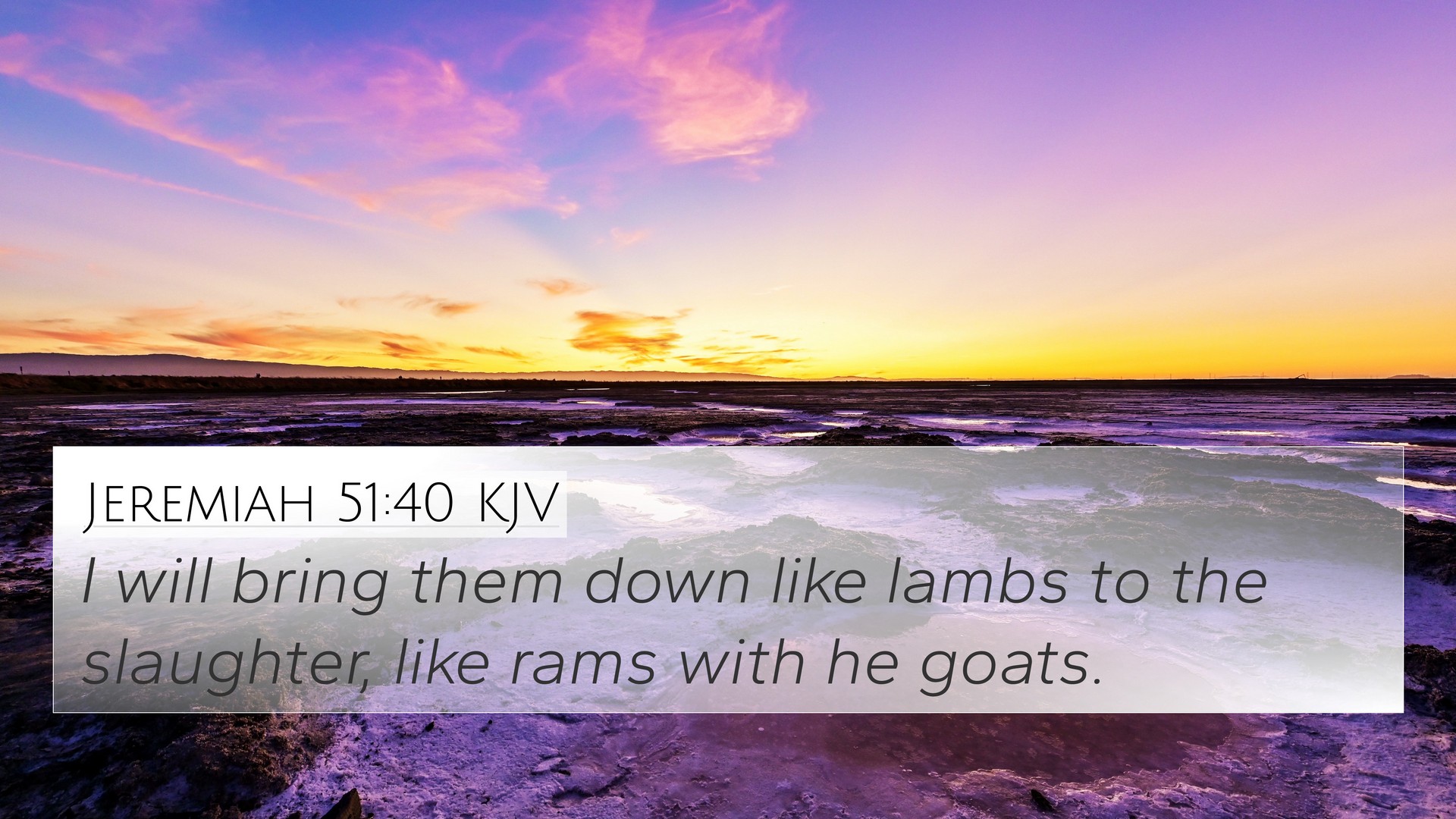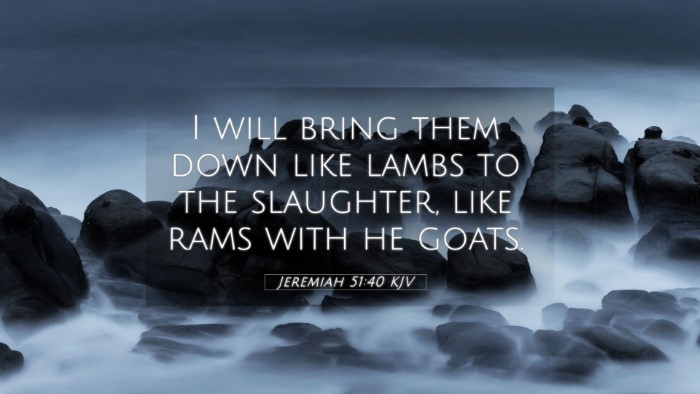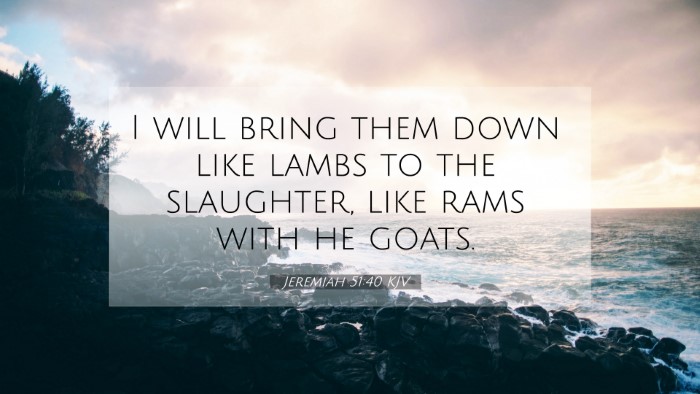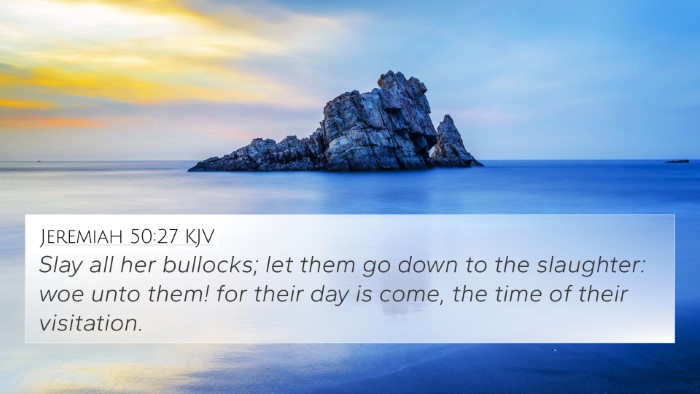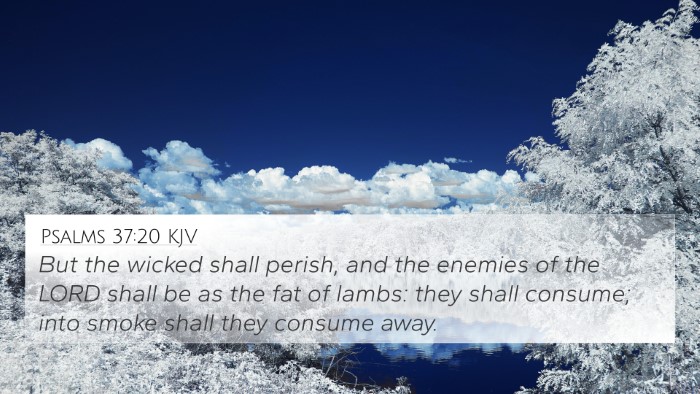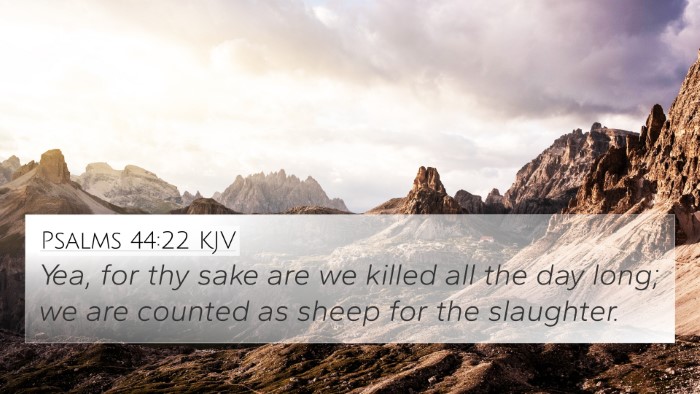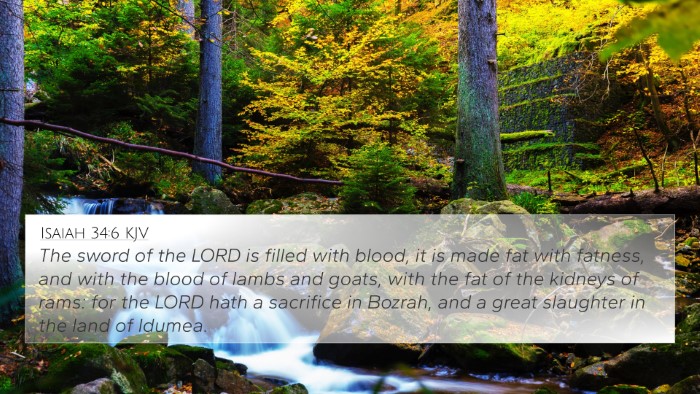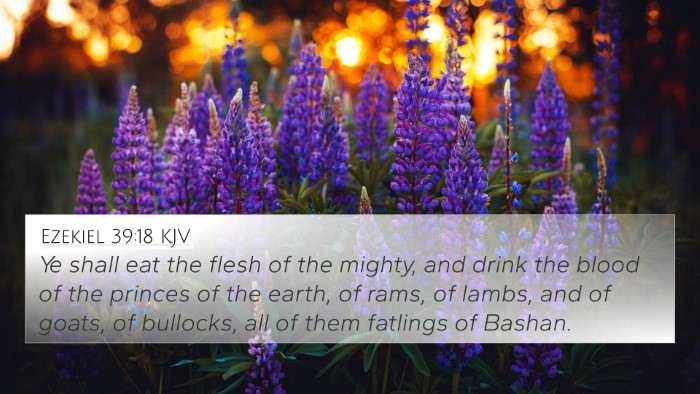Understanding Jeremiah 51:40
This verse states:
"I will bring them down like lambs to the slaughter, like rams with male goats." (Jeremiah 51:40)
Summary of Meaning
Jeremiah 51:40 illustrates God's judgment upon Babylon. The imagery of lambs and rams signifies the fate of the Babylonians, who will face destruction. This verse is a powerful statement concerning divine sovereignty over nations and the inevitable consequences of sin.
Insights from Public Domain Commentaries
Matthew Henry's Commentary
Henry interprets this verse as a divine pronouncement regarding the downfall of Babylon. He notes that the metaphor of slaughtered sheep emphasizes the helplessness of those facing judgment. Babylon's pride and idolatry have led to this divine retribution, and the vivid imagery serves to illustrate the seriousness of God's judgment.
Albert Barnes' Notes
Barnes highlights the figurative language used in the verse, portraying the Babylonians as sheep destined for slaughter. He underscores the certainty of their destruction and the completeness of God's plan against them, aligning this judgment with previous prophetic declarations against Babylon and the broader context of God's justice.
Adam Clarke's Commentary
Clarke emphasizes the planned nature of this judgment, suggesting that God's actions are both sovereign and purposeful. The mention of rams and male goats symbolizes strength being brought low, showcasing God’s power over even the mightiest of nations. Clarke also connects this destruction to the essence of divine righteousness in dealing with the wicked.
Cross-references and Thematic Connections
This verse connects to several other passages in the Bible that share similar themes of judgment and retribution:
- Isaiah 34:6 - “The sword of the Lord is bathed in heaven; it will come down upon Edom, the people I have totally destroyed.”
- Lamentations 2:21 - “The young and the old lie together in the dust of the streets; my young women and young men have fallen by the sword.”
- Ezekiel 39:17 - “Son of man, this is what the Sovereign Lord says: Call out to every kind of bird and all the wild animals. Assemble and come together from all around to the sacrifice I am preparing for you.”
- Zephaniah 1:7 - “Be silent before the Sovereign Lord, for the day of the Lord is near. The Lord has prepared a sacrifice; he has consecrated those he has invited.”
- Revelation 19:17 - “And I saw an angel standing in the sun, who cried in a loud voice to all the birds flying in midair, ‘Come, gather together for the great supper of God.’”
- Matthew 26:31 - “Then Jesus told them, ‘This very night you will all fall away on account of me, for it is written: “I will strike the shepherd, and the sheep of the flock will be scattered.”’”
- John 10:11 - “I am the good shepherd. The good shepherd lays down his life for the sheep.”
Exploring Biblical Themes and Connections
Jeremiah 51:40 serves as a significant benchmark offering insights into broader themes of divine justice and prophecy fulfillment:
- Divine Sovereignty: The control God holds over nations emphasizes His ultimate power.
- Judgment: The theme of slaughter symbolizes the severe consequences that come from turning away from God.
- Imagery of Sacrifice: The sacrificial references relate this judgment to the loss and suffering that justice entails.
- Prophetic Confirmation: Jeremiah’s declarations align with similar prophetic voices throughout scripture emphasizing God's consistency in judgment.
Tools for Understanding Scripture
For a deeper understanding of scripture, including cross-references connected to Jeremiah 51:40, one can utilize:
- Bible Concordance: Helps identify keywords and their occurrences across the Bible.
- Bible Cross-reference Guide: Assists in discovering interconnections between passages.
- Bible Reference Resources: Provides comprehensive materials for understanding thematic connections.
Conclusion
Jeremiah 51:40 offers a sobering reflection on God's judgment against sin, using vivid metaphors that resonate through the entirety of scripture. Cross-referencing this verse with related biblical texts enhances the understanding of God's overarching messages regarding justice and reconciliation. As you study, consider how these themes connect within the larger narrative of the Bible, further enriching your theological insights.
